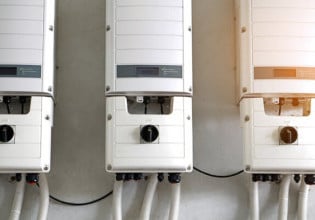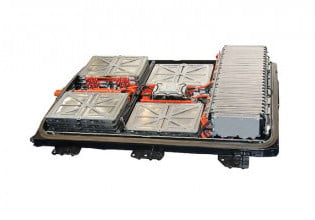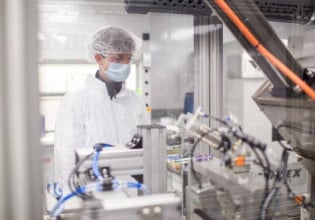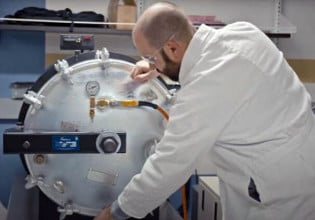Volvo Adopts Breathe’s Algorithms To Boost Fast-Charging Times
Volvo has partnered with a U.K. company to improve EV charging times by up to 30 percent.
Fast charging ability is one key to consumer acceptance of electric vehicles (EVs). Although many mainstream EVs now range between 250 and 300 miles between charges, EV drivers expect an electrified vehicle to recharge as quickly as gassing up a gasoline-powered vehicle.
Volvo Cars hopes to reduce the time necessary to fully charge an EV by up to 30% by using an algorithm to manage the car’s batteries. To implement this technology, Volvo is partnering with Breathe Battery Technologies.
Volvo’s powertrain. Image used courtesy Volvo Cars
Battery Performance in Fast Charging
Fast charging of the lithium-ion batteries used in current EVs has its challenges. Forcing electricity into a battery pack heats the individual cells, which must be monitored to prevent overheating. Repeated fast charging, unless carefully controlled, can degrade the lifetime of the EV pack, eventually reducing the vehicle’s range. Fast charging between 10 percent and 80 percent of the pack’s capacity is considered a safe zone, but when charging above 80 percent state of charge, the charging rate must be reduced to prevent this degradation.
All EVs control their battery performance using a battery monitoring system (BMS) that continuously checks the voltage and temperature of each cell during both charging and discharging while driving. Typically, the BMS controls battery charging based on a set of rules determined by the battery manufacturer. These rules specify charge rates, temperature ranges, and battery capacity based on extensive testing undertaken by the battery manufacturer. This allows the BMS to maintain a high level of safety but might not produce the optimum performance and fast charging time for the battery pack.
Breathe’s Battery Solution
To implement the algorithm-enabled charging, Breathe has partnered with Volvo Cars, integrating the software with Volvo’s in-house developed BMS to improve the charging capability of the carmaker’s EVs.
Breathe Battery Technologies was spun out of Imperial College in the U.K. in 2019. The company has developed physics-based real-time battery management software that dynamically adjusts the charging parameters based on the individual cell’s state of charge, temperature, and state of health to optimize the rate at which the pack can be recharged. The goal is to safely obtain greater performance from existing pack architectures while delivering faster charging without compromising cycle life.
Breathe’s charging software. Image used courtesy of Breathe Battery Technologies
According to Volvo, Breathe’s embedded software allows a 15- to 30-percent reduction in the time it takes to charge from 10 percent to 80 percent charged state, depending on pack configurations. In testing, the company observed the charging time improvements over the entire life of the battery pack, with no unexpected reduction in battery health. The software doesn’t require any changes to Volvo's EVs and can be used with any type of battery cell chemistry.
Volvo’s Electrification Future
Volvo Cars, with research and development and design centers in Gothenburg, Sweden, and Shanghai, China, is owned by Chinese company Geely. Volvo is set to become fully electric by 2030, and optimizing fast charging is one step toward that goal. Although Volvo is the first car company to use the Breathe software, it does not have an exclusive contract, and the technology is expected to show up on other EVs and eventually find applications on smaller electronic devices to optimize battery charging.








